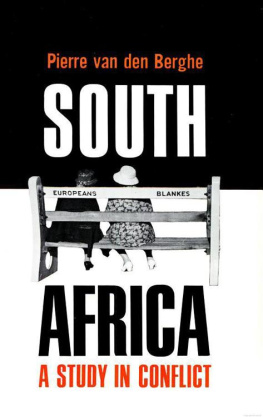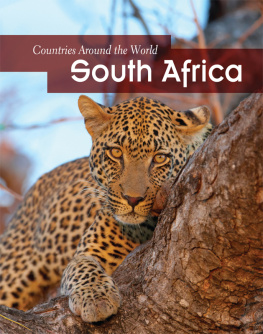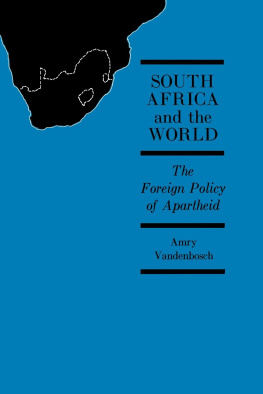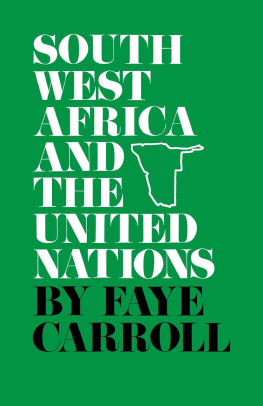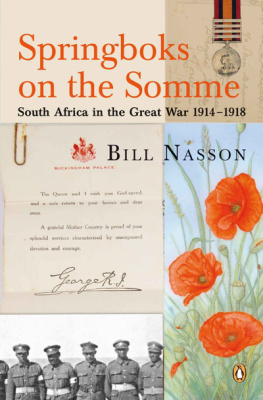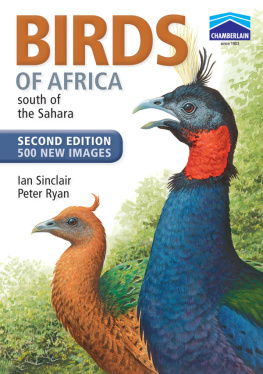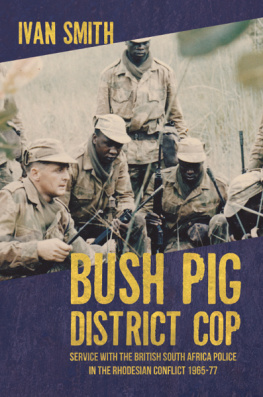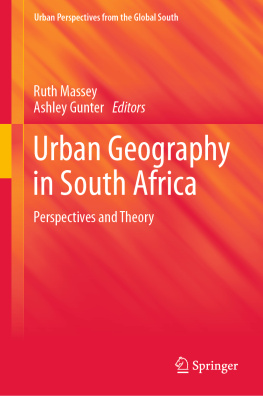Pierre L. Van den Berghe - South Africa: A Study in Conflict
Here you can read online Pierre L. Van den Berghe - South Africa: A Study in Conflict full text of the book (entire story) in english for free. Download pdf and epub, get meaning, cover and reviews about this ebook. year: 1967, publisher: University of California Press, genre: Politics. Description of the work, (preface) as well as reviews are available. Best literature library LitArk.com created for fans of good reading and offers a wide selection of genres:
Romance novel
Science fiction
Adventure
Detective
Science
History
Home and family
Prose
Art
Politics
Computer
Non-fiction
Religion
Business
Children
Humor
Choose a favorite category and find really read worthwhile books. Enjoy immersion in the world of imagination, feel the emotions of the characters or learn something new for yourself, make an fascinating discovery.
- Book:South Africa: A Study in Conflict
- Author:
- Publisher:University of California Press
- Genre:
- Year:1967
- Rating:4 / 5
- Favourites:Add to favourites
- Your mark:
- 80
- 1
- 2
- 3
- 4
- 5
South Africa: A Study in Conflict: summary, description and annotation
We offer to read an annotation, description, summary or preface (depends on what the author of the book "South Africa: A Study in Conflict" wrote himself). If you haven't found the necessary information about the book — write in the comments, we will try to find it.
South Africa: A Study in Conflict — read online for free the complete book (whole text) full work
Below is the text of the book, divided by pages. System saving the place of the last page read, allows you to conveniently read the book "South Africa: A Study in Conflict" online for free, without having to search again every time where you left off. Put a bookmark, and you can go to the page where you finished reading at any time.
Font size:
Interval:
Bookmark:
org@page { margin-bottom: 5.000000pt; margin-top: 5.000000pt; }
iii
South Africa,
A Study in Conflict
By Pierre L. van den Berghe
iv
Copyright 1965 by Wesleyan University University of California Press Berkeley and Los Angeles, California University of California Press, Ltd., London, England First Paper-bound Edition 1967 Standard Book Number 520-01294-1 Library of Congress Catalog Card Number: 65-14053 Manufactured in the United States of America 4567890
v
To two great South Africans:
Albert Luthuli and Alan Paton,
and to all others who seek to promote non-racial democracy in
South Africa.
Relatively speaking, no nation anywhere in the world has done as much for the welfare and happiness of its non-white population as ours.
M.D.C. De Wet Nel, 1963.
Apartheid ... constitutes the most urgent and potentially explosive problem that faces the free world.
Jordan K. Ngubane, 1963.
vii
Preface to the Paper-Bound Book
Some three years have elapsed since I last revised the text of this book. Considering the pace of change in Africa, this is a considerable period. However, if this book has erred in its predictions, it has been in the direction of expecting a faster pace of change in Southern Africa than has in fact taken place. In every fundamental respect, South Africa has not appreciably changed since this book first appeared. Hence, I have resisted the temptation to "update" it, except for the bibliography.
Chapter Ten is perhaps the only one which has been partially invalidated by recent events. The resilience of Portugal and of the white supremacist regime in Rhodesia has given the South African government time to develop a more effective repressive apparatus. South Africa still retains its cordon sanitaire of white controlled territories to the North; and the economic dependence of Lesotho and Botswana on South Africa is reducing the political independence of these former British High Commission Territories to an empty legalism. They are in Jack Halpern's phrase "South Africa's hostages." International pressures against South Africa have continued to mount but they have remained largely ineffective so far. Both the United States and Britain have cautiously inched away from South Africa while still reluctant to take direct action beyond an arms embargo rendered meaningless by the
viii
willingness of other NATO powers to sell the Republic modern weapons. The International Court's failure to pass judgment on South Africa's jurisdiction over South West Africa, while in no sense a vindication of South Africa, gave the Nationalist Government another tactical advantage.
Internally, the apartheid policies of the government did not change during the last years of Verwoerd's regime. The choice of Balthazar J. Vorster as Verwoerd's successor was consistent with the steady evolution of the Nationalist Party toward the right. Just as Verwoerd was further to the right than Strydom, Strydom than Malan, and Malan than Hertzog, so Vorster as an extremist among reactionaries was a logical choice to succeed the assassinated Verwoerd. The implementation of apartheid policies has, however, undergone rapid change in that the trend toward streamlining, rationalization and efficiency in the means of repression which was evident from 1961 continued. Military expenditures have climbed even higher; the secret police have become better trained; the public display of armed violence has been replaced by preventive arrests and invisible repression in the prisons and labor camps. All political groups left of the United Party have been increasingly suppressed and harassed. The United Party is still useful as a harmless pseudo-opposition which allows the government to parade as a parliamentary democracy.
The liberation of South Africa remains contingent on two main external factors. First, the territories north of the Limpopo must come under majority rule. Second, there must be effective outside support for the South African underground and an escalation of sanctions.
ix
Acknowledgments
This work is the product of a five-year study of South Africa, including a twenty-two months stay in that country (February, 1960 to December, 1961). It is the third manuscript of book length to come out of my study. The first was an unpublished doctoral dissertation on race relations in South Africa; the second was a community study of a small sugar town in Natal; the present work, while greatly different from the previous two, grew out of them. Directly or indirectly, then, numerous people and organizations contributed to the present endeavour.
Among them, my wife Irmgard deserves a unique place for her unfailing moral support, patient clerical help, and sobering criticisms. The bulk of the material support which made our stay in South Africa possible came from a generous Ford Foundation grant and a frank Knox Memorial Fellowship. In addition, I received assistance from the Harvard Laboratory of Social Relations, the Institute for Social Research at the University of Natal, Wesleyan University, and the State University of New York. To Gordon W. Allport and Talcott Parsons, my joint thesis directors at Harvard, I am grateful for providing me with intense intellectual stimulation, constructive criticism, and warm encouragement.
I should like to express my thankfulness for the many hundreds of South Africans whom I have formally interviewed or
x
simply met during my stay in the country. Numerous local colleagues, acquaintances, and friends extended my wife and me their warm hospitality, and helped us in gaining a deeper insight into South Africa's problems. At the risk of making invidious distinctions, I should like to mention particularly Bill Bhengu, Ivar and Cynthia Chetty, S. P. Cilliers, Hamish and Elaine Dickie-Clark, Hans and Marie Holleman, Leo and Hilda Kuper, John and Ursula Laredo, Albert Luthuli, Ben Magubane, Jack and Len Mann, Joe Matthews, Philip Mayer, Ismael and Fatima Meer, Edna Miller, Jordan Ngubane, Anthony Ngubo, Alan Paton, Birbal Rambiritch, Margo Russell, Jack Simons, Johann and Pamela van den Berg, and R. G. T. Watson. During my stay in Paris in 1962, I greatly profited from my renewed association with Georges Balandier, Roger Bastide, and Jacques Maquet. To Ona Langer and Jean Coleman, I am grateful for typing the second and third drafts of the manuscript, and to Shirley Stout and David Frey for competently editing and criticizing the text.
Finally, I am indebted to my many predecessors in the field of South African scholarship. I found the works of Edgar H. Brookes, Gwendolen M. Carter, C. W. De Kiewiet, Ellen Hellmann, Muriel Horrell, Leo and Hilda Kuper, I. D. MacCrone, W. M. Macmillan, J. S. Marais, Leo Marquard, Philip Mayer, Sheila Patterson, B. G. M. Sundkler, Eric A. Walker, and Monica Wilson particularly useful. Authors of fiction such as Peter Abrahams, Sarah G. Millin, Ezekiel Mphahlele, and Alan Paton have also greatly contributed to my gaining a deeper understanding of their country. Indeed, the present work is, at best, a new interpretation and arrangement of known facts, and, at worst, a reformulation thereof in sociological jargon. Whatever I have contributed to the extension of factual knowledge about South Africa has been published mostly elsewhere. Errors of fact and interpretation which may have crept into my work, as well as the opinions expressed here, are entirely my responsibility.
P.L.v.d.B.
Buffalo, 1964
xi
Contents
Chapter One: Introduction 3 Chapter Two: The Historical Background 13 Chapter Three: The Social Structure of Modern South Africa: Culture and Status 38 Chapter Four: The Social Structure of Modern South Africa: Polity and Economy 73 Chapter Five: Socio-Political Conflicts: Afrikaners Versus English 97 Chapter Six: Socio-Political Conflicts: "Native Policy" 110 Chapter Seven: Socio-Political Conflicts: The Non-White Opposition and the 155 Internal Power Balance Chapter Eight: The Economic System and Its Dysfunctions 183 Chapter Nine: Value Conflicts 217 Chapter Ten: External Pressures 247 Chapter Eleven: Some Theoretical Considerations 265 Appendix 282
Font size:
Interval:
Bookmark:
Similar books «South Africa: A Study in Conflict»
Look at similar books to South Africa: A Study in Conflict. We have selected literature similar in name and meaning in the hope of providing readers with more options to find new, interesting, not yet read works.
Discussion, reviews of the book South Africa: A Study in Conflict and just readers' own opinions. Leave your comments, write what you think about the work, its meaning or the main characters. Specify what exactly you liked and what you didn't like, and why you think so.

